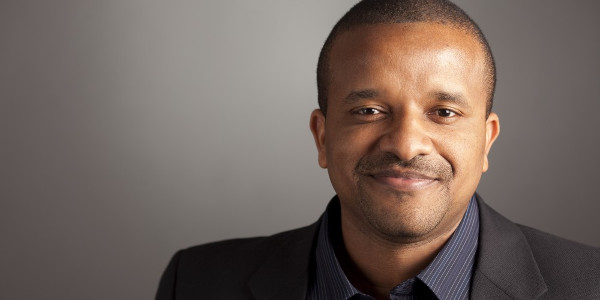Chris Folayan: How I built an online platform to help retailers reach Africa’s consumers
PRESS OFFICE: OPIC
In 2013, I was a successful California-based entrepreneur, who had already built and sold multiple high-tech startups, when I tried to raise money for a promising new online retail business.
But this time there was a catch. My startup was targeting consumers in sub-Saharan Africa, which, despite rapid economic growth, is still not well understood by many US investors and is still not very familiar to even those US retail chains eyeing global expansion.
It was almost impossible to raise money. I pitched the business to 35 venture capitalists. They all gave me their verbal blessing, but they were all unwilling to invest.
As someone who was born in Nigeria and travels back frequently to visit family and friends, I understood the strong demand for a service that would enable Africa’s growing middle class to shop from western retail stores. While African consumers can access major online retail sites, they cannot order from them directly since most don’t accept local currencies or ship to Africa.
Every time I flew back to Nigeria I would come carrying items that people had asked me to bring. Once I was stopped at the airport checking counter attempting to check 10 pieces of luggage. Denied a boarding pass due to my excessive luggage, I rode back home and began conceptually building an interface that would connect US retailers with African shoppers.
Today Mall for Africa is helping consumers in Nigeria, Kenya, South Africa and 12 other African countries buy merchandise from 263 western retailers including Amazon, eBay, Macy’s and Walmart. Each week, we ship about four to six tonnes of merchandise including apparel, school supplies and equipment for small businesses such as hospitals, hotels, restaurants and hair salons. We’re growing rapidly and expanding into more countries, but the process of building a business for consumers in Africa was unlike anything I had done before and required overcoming several challenges.
Financing: After being turned down by so many US investors, we were finally successful in raising money from Helios Investment Partners, one of the few independent pan-African private equity firms that was founded and managed by Africans, and brings a deep understanding of Africa’s economic landscape and the opportunity it presents for investors. Helios raised investment capital from the Overseas Private Investment Corporation (OPIC), the US Government’s development finance institution, which invests in emerging markets around the world and is also an active investor in Africa. OPIC has more than one quarter of its global portfolio invested in Africa.
Secure payments: Since major retailers don’t offer shipments to Africa and most don’t accept local currencies or credit cards, Mall for Africa has to connect the dots. Our platform enables shoppers to identify what they want to buy and then pay us in their local currency, and local payment platforms. Once payment is secured, we complete the purchase.
A shipping solution: Some of the other challenges African shoppers often face are a lack of options and steep, arbitrary markups among items that are available locally. Mall for Africa operates two warehouses in Portland, Oregon in the United States; and London where merchandise purchased is shipped and verified before being shipped to customers. Initially we would wait to have enough merchandise to ship in a cost effective manner but orders have grown to the point that we are able to ship daily through DHL and other shipping partners. As our volumes grow, we continue to negotiate lower shipping rates and pass the savings to our customers. While we do ship to some homes, we typically deliver to designated pickup locations in the host country.
Africa’s population is young, growing rapidly, increasingly living in urban areas, and increasingly earning disposable income. All this makes it an exciting time for retail in Africa. Retail sales in Nigeria and Ghana are projected to more than triple in 2019 from 2009 levels, and to more than double in Kenya. Internet access is also growing rapidly, making online retail a logical solution. In Kenya and Nigeria, our two main markets, close to half the population has internet access and as the cost to get online decreases, we expect more people to be connected and e-commerce to become more prevalent.
Before African consumers could shop online they had very limited selection and even if they could find a store selling a desired item of apparel, they often could not find it in the right size or color. Mall for Africa has changed that, enabling African consumers to shop the same way Americans do. It has been rewarding to provide such a valued service. Along with helping Africans make discretionary purchases, we’re helping businesses and schools access essential supplies, state-of-the-art equipment and of entrepreneurs.
Chris Folayan is the founder and CEO of MallforAfrica.com.


